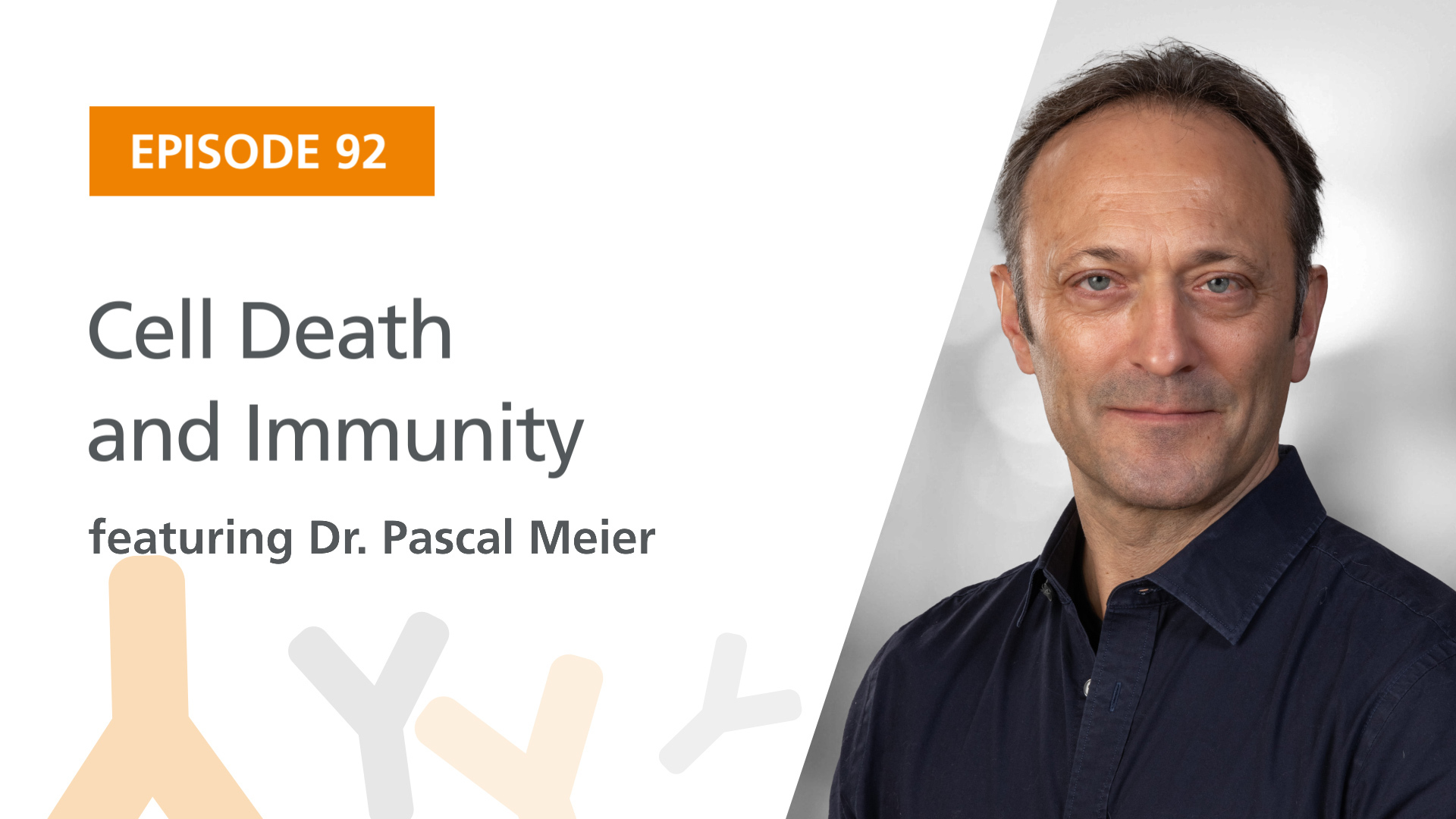
Guest:
Dr. Pascal Meier is a Professor and Group Leader at the Institute of Cancer Research in London, England. His group investigates the complex relationship between cell death, immunity, and tumorigenesis. Particularly, they are focused on the role of cell death and inflammation in adaptation to tissue stress, treatment resistance, and tumour surveillance.
Featured Products and Resources:
- IMMUNOLOGY2025
 is taking place May 3-7 in Honolulu. Submit your abstract now!
is taking place May 3-7 in Honolulu. Submit your abstract now! - Switch to a more efficient way to isolate cells with EasySep

The Immunology Science Round Up:
New Potential for Cancer Immunotherapy – Researchers have identified a new type of immune cell called stem-like CD4 T cells that play an important role in anti-tumor immunity.
An Improved Treg Therapy – Human OX40 ligand-specific CAR-Tregs may be a potent cellular therapy to control allo- and autoimmune diseases.
Chronic Inflammation Worsens Heart Failure – Blocking the molecular signals between inflammation-causing immune cells and fibroblasts can prevent fibrosis.
Programmable Bacteria – Scientists have engineered a strain of bacteria to express cytokine IFN-γ within the tumor core.
Image courtesy of Dr. Pascal Meier


